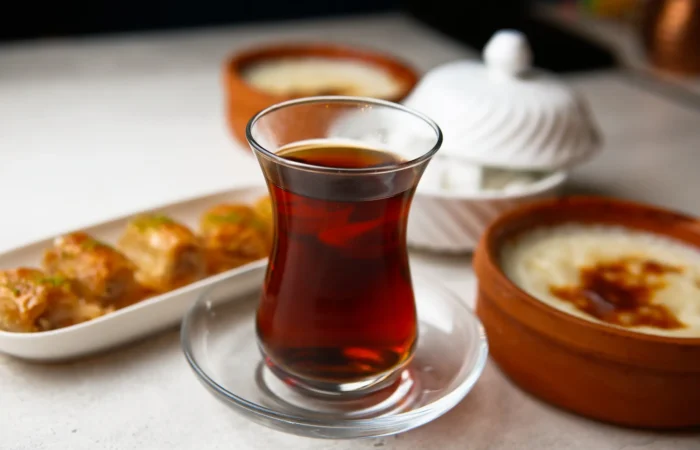Turkish coffee, known as Türk Kahvesi, is more than just a drink – it is an experience deeply embedded in Turkish culture, representing hospitality, heritage, and conversation. Renowned for its strong flavor and thick, velvety texture, Turkish coffee is an essential part of social gatherings and cherished as a symbol of friendship and trust.
A Glimpse into History
The history of Turkish coffee dates back to the mid-16th century when coffee was introduced to Istanbul from Yemen during the reign of Sultan Suleiman the Magnificent. The Ottomans refined the brewing process, creating the distinct preparation method still used today. Turkish coffeehouses (kahvehane) quickly became vital social hubs where literature, music, and political discussions flourished.
In 2013, UNESCO recognized Turkish coffee as part of the Intangible Cultural Heritage of Humanity, highlighting its importance in Turkish society and global culinary history.
How Turkish Coffee is Made
Turkish coffee is unique not only for its preparation but also for its unfiltered, frothy texture.
Ingredients and Tools:
Finely ground coffee (Türk Kahvesi)
Cold water
Sugar (optional)
Cardamom (optional)
Cezve (small copper or brass pot)
Small porcelain cups (fincan)
The Process:
Measuring: For each cup, add one heaping teaspoon of coffee and the desired amount of sugar (sade for no sugar, az şeker for a little, orta for medium, and şekerli for sweet).
Brewing: Mix the coffee, sugar, and cold water in the cezve. Heat slowly over low flame without stirring, allowing the coffee to foam gently.
Pouring: Once the foam rises, carefully pour a little into each cup, return the cezve to heat, and repeat until all the coffee is poured, ensuring each cup has froth.
How to Drink Turkish Coffee
Turkish coffee is sipped slowly and often accompanied by a glass of water to cleanse the palate. Traditionally, it is served with Turkish delight or chocolate. After finishing, the grounds left at the bottom of the cup are sometimes used for fortune-telling (fal), a popular custom in Turkish culture.
The Cultural Significance of Turkish Coffee
Symbol of Hospitality: Offering Turkish coffee to guests reflects warmth and friendship.
Engrained in Rituals: Turkish coffee plays a central role in pre-wedding ceremonies, social gatherings, and business negotiations.
Ceremonial Importance: From engagements to religious holidays, Turkish coffee is a key feature of special events and celebrations.
Where to Enjoy Turkish Coffee in Istanbul
Mandabatmaz (Beyoğlu): Known for its rich, foamy Turkish coffee.
Pierre Loti Café (Eyüp): Offers Turkish coffee with panoramic views of the Golden Horn.
Sade Kahve (Rumelihisarı): A scenic spot by the Bosphorus, perfect for traditional Turkish coffee.
Cost and Accessibility
Price Range: 50-100 TRY per cup, depending on location.
Availability: Turkish coffee is available at nearly every café, restaurant, and street corner across Istanbul.
Turkish coffee is not just a drink – it is a journey into the heart of Turkish culture and history. With its rich flavors and deep-rooted traditions, sipping a cup of Turkish coffee offers a window into the soul of Turkey, making it an essential experience for anyone visiting the country.









